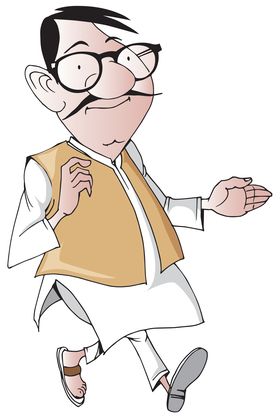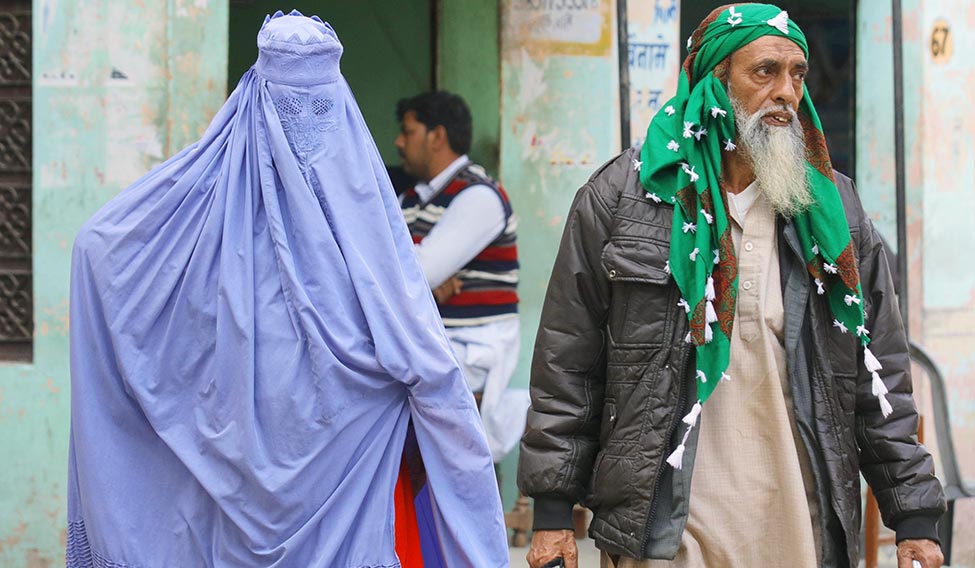The atmosphere is quiet, with very little noise. Trees and walls have reappeared after posters, hoardings and festoons were removed, as directed by the Election Commission. The electioneering is low key.
Police and paramilitary personnel are active, checking vehicles. Everything suggests that February 11 will see a peaceful election in the 15 districts of western Uttar Pradesh. There are 73 assembly constituencies in the region, including highly volatile ones like Muzaffarnagar, Mathura, Bishada, and Kairana. In the 2012 assembly polls, the Samajwadi Party and the Bahujan Samaj Party won 24 seats each, while the BJP won just 10.
Law and order is the major problem here and the local people say that the situation has worsened under the SP regime. Criminals are brazen and bold, and allegedly enjoy the protection of the ruling party.
There are interesting tales to buttress allegations. In 2015, a buffalo was stolen from a village in Kairana and the culprits were nabbed. But, when the police learnt that one of them was a relative of an SP leader, they let him off and closed the case. Ironically, when SP minister Azam Khan’s buffaloes were stolen, the entire police machinery in the region was pressed into service to recover them.
Three years ago, five murders took place in Kairana within a month. As three of the victims were traders, fellow traders closed their shops for an entire week and one victim’s family migrated to Muzaffarnagar. Locals say this migration was due to pressure from the dominant community in Kairana.
People here have seen cops being openly beaten. Last year, BJP MP Hukum Singh spoke of migration of 364 Hindu families, at the national executive meeting of the party in Allahabad.
The nearby Muzaffarnagar was witness to communal riots in 2013, which left 64 dead. The violence originated in Kaval, a small town, and spread to Muzaffarnagar and adjoining areas.
“Phone calls from Lucknow, allegedly by a minister, saved the real culprits. This annoyed locals. Subsequently, panchayats were held in the region to take revenge. This added fuel to fire,” says Dr Mahendra Saini of Kaval.

In the Lok Sabha elections next year, the BJP won all seats in the region, except Firozabad. It is trying to repeat this performance in the assembly elections. Firebrand BJP MP Mahant Adityanath has said, “The situation in west UP is similar to what it used to be in Kashmir in 1990, when Kashmiri Pandits were forced to flee from the valley.”
Javed Ali, a resident of Jahanpura village in Kairana, says, “Whatever little development you see here, was done by Hukum Singh. Law and order is particularly bad here, because of the present government. Though I am a Muslim, I favour the BJP, and so do others like me.”
BJP leaders Narendra Modi and Amit Shah have addressed meetings here. The BJP has openly played its Hindu card by fielding the likes of Sangeet Som, Suresh Rana and Vikram Saini, who were accused and imprisoned after the riots. A few months ago, Som carried CDs of the riots to distribute among the people. These were later seized from his vehicle. The BJP has not fielded a single Muslim candidate in the region.
Keeping the caste equation in mind, six assembly seats of Muzaffarnagar—Khatauli, Charthawal, Budhana, Mirapur, Purkazi and Muzaffarnagar City—feature candidates from the dominant castes of the respective areas.
The party has been trying hard to woo the powerful Jat community, which comprises 22 per cent of the population in the 19 districts of western UP. BJP leaders have been reminding them of the 2013 riots, in which 16 Jats were killed, and cases against 6,000 were registered. The BJP has fielded 15 Jats in the region, more than its political rivals. And, for the first time, 17 Jats have entered the Lok Sabha, four of them becoming cabinet ministers.
This time, the Congress-SP alliance can be a major game changer. Both parties have accused the BJP of catalysing communal clashes in 2013. Both, Chief Minister Akhilesh Yadav and Congress vice president Rahul Gandhi have bashed the demonetisation drive and highlighted farmers’ issues, as western UP consists predominantly of farmers.
Akhilesh and Rahul have been consolidating anti-Modi sentiments in the area. Mahendra Saini, former pradhan of Kaval, said, “In 2014, I was impressed with Modi’s promises but, in the past two and a half years, his government has not done anything for the region. Demonetisation has broken the backbone of small traders, farmers and labourers. This time, the wind is blowing against the BJP.”
The story of western UP is incomplete without Chaudhary Ajit Singh of the Rashtriya Lok Dal. Last time, two out of the three seats in his home district, Baghpat, were bagged by the BSP. This time, too, he was left red-faced when the pact between his party and the SP failed to take off. A major challenge before him will be to save his Chhaprauli seat, which his party has never lost. The RLD leader has also been facing desertion from his party.
Ajit Singh is also said to have lost support of the Jats, following the 2013 riots, as they felt his party had not fully supported them. With the Muslim votes in mind, the RLD has now fielded several Muslims in the area.
Interestingly, western UP has big names who are fighting from behind the curtain. Union Home Minister Rajnath Singh is not in the ring, but his son Pankaj Singh is contesting from Gautam Budh Nagar district. Hukum Singh is throwing all his energy behind daughter Mriganka, in Kairana—an assembly seat he won six times.








